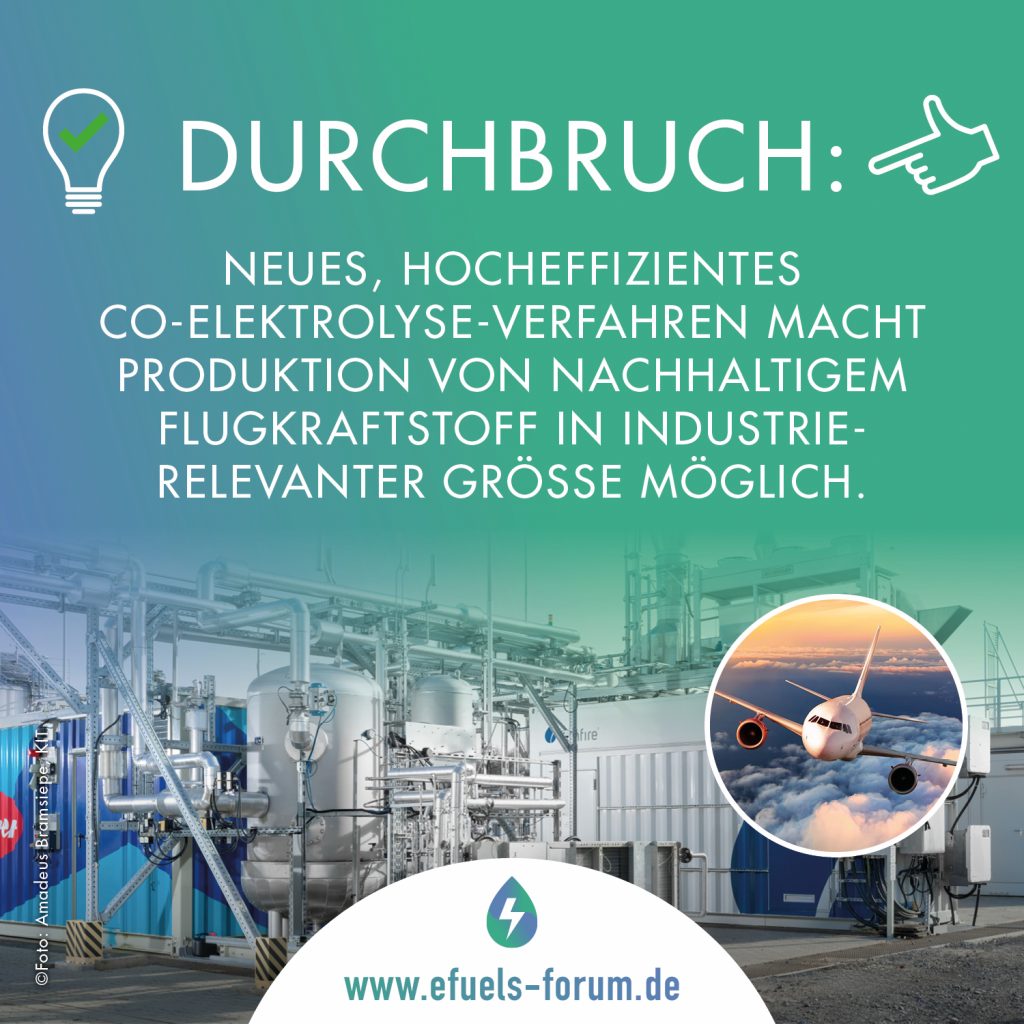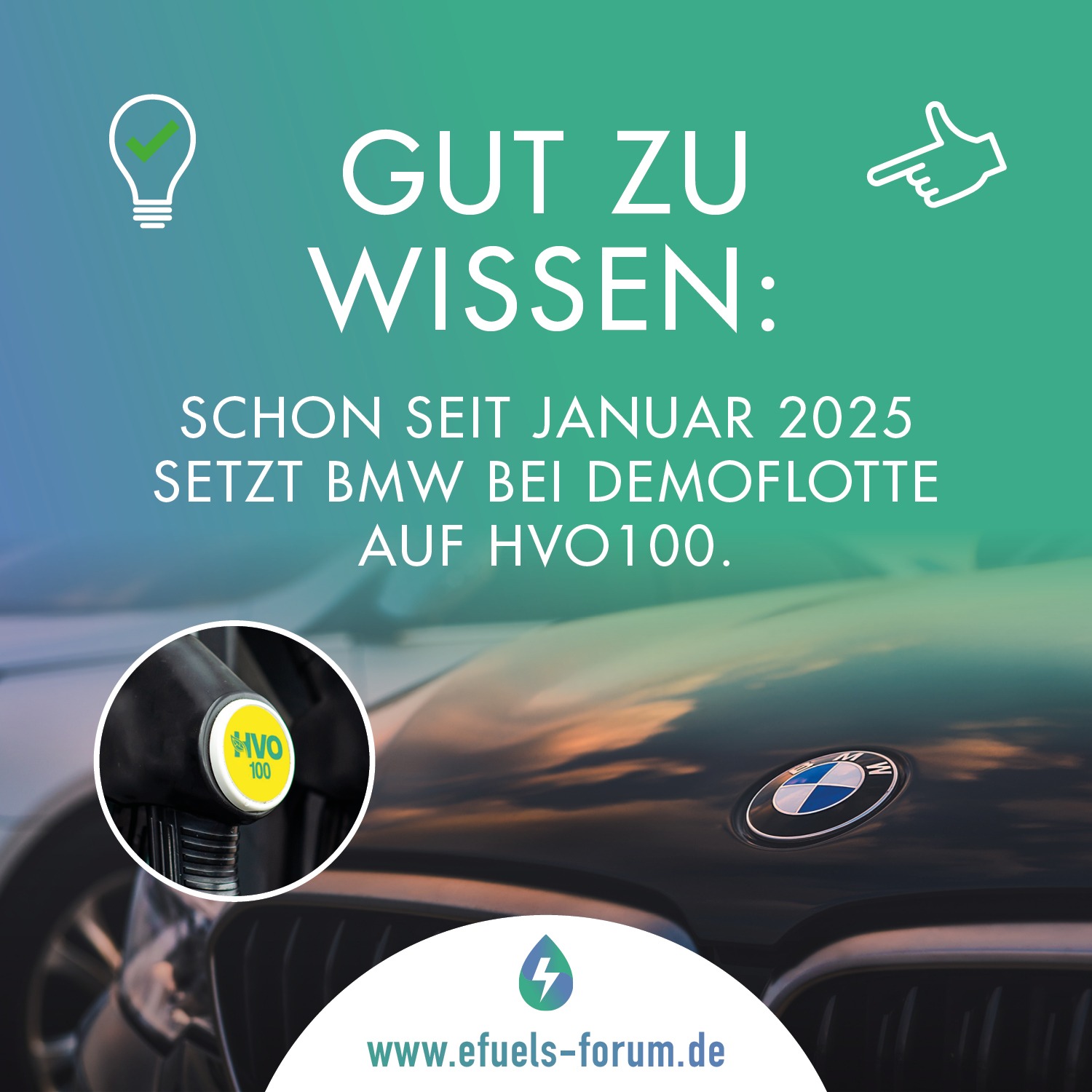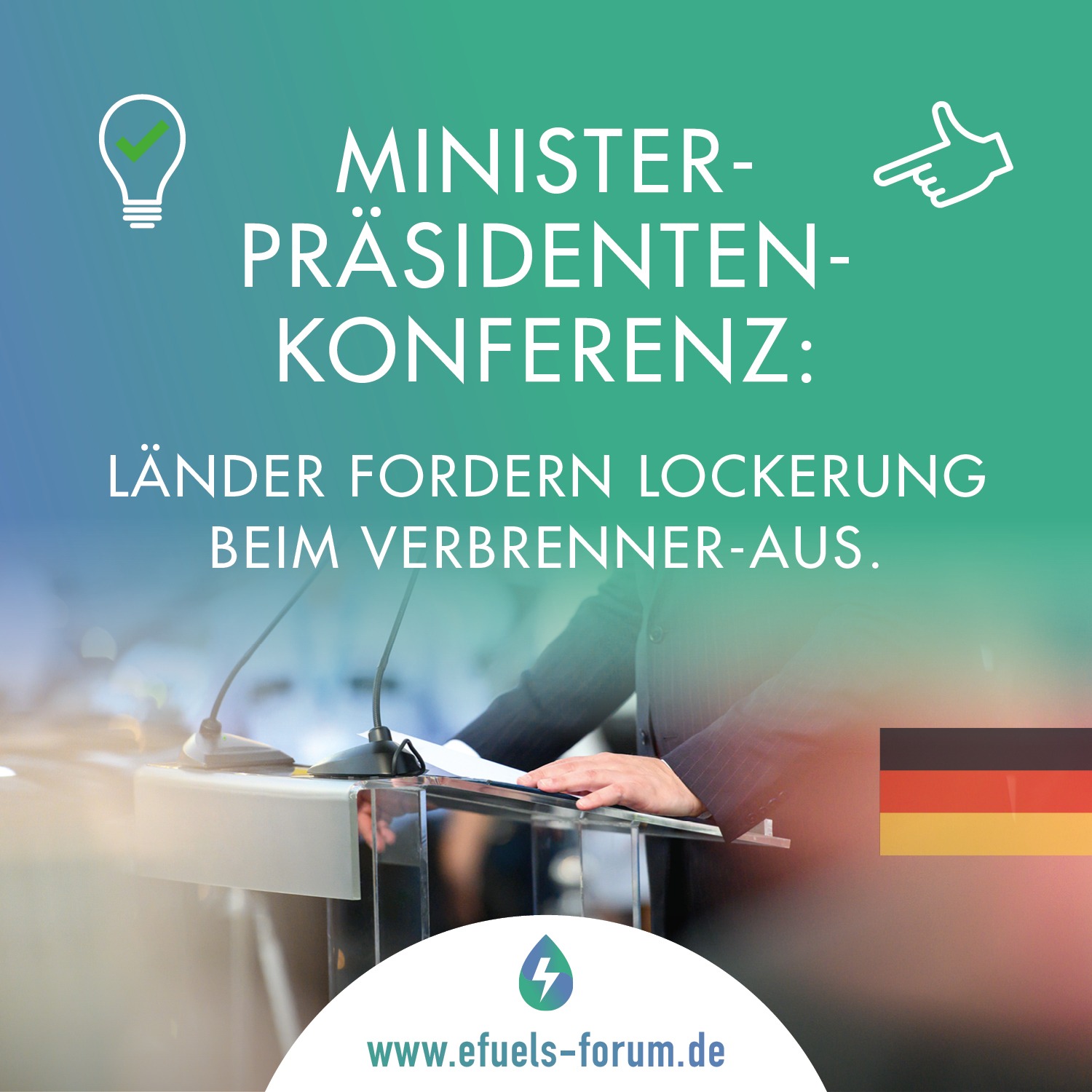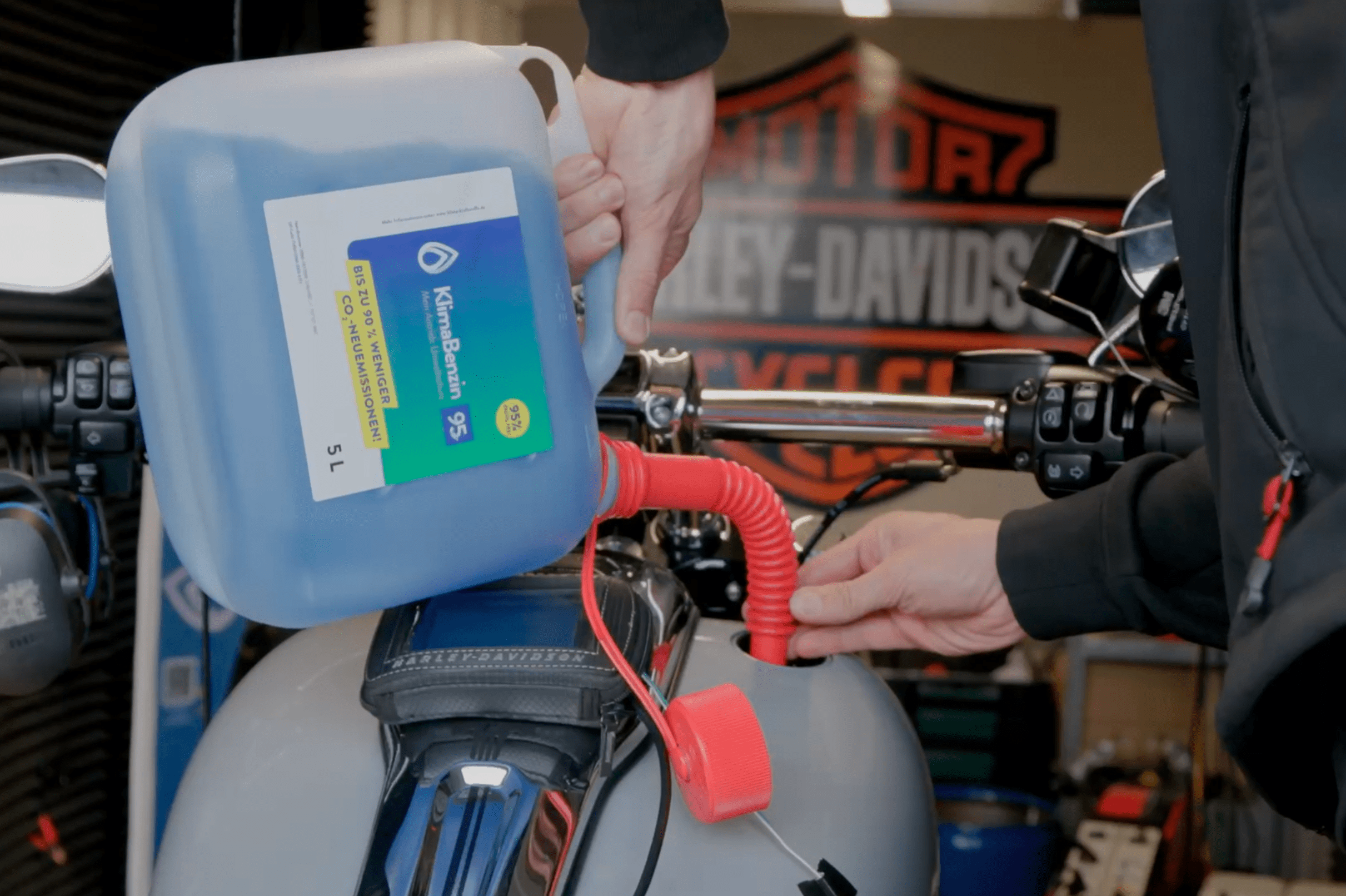Is the efficient production of sustainable aviation fuel really impossible, as critics repeatedly claim?
Of course not: the research team at the Karlsruhe Institute of Technology (KIT ) had already been able to produce fuels such as kerosene from CO2, water and green electricity in a climate-friendly way using the power-to-liquid process – but now researchers in the Kopernikus project P2X have gone one better and coupled the highly efficient co-electrolysis process with fuel synthesis for the first time on an industrially relevant scale of 220 kilowatts of power.
“The special thing about co-electrolysis is that it electrochemically and highly efficiently converts water vapor and CO2 directly into synthesis gas in a single step. Up to 85 percent of the electrical energy used for this is recovered as chemical energy in the synthesis gas. In addition, the coupling demonstrated that our co-electrolysis system has very high system availability and reliability and was therefore able to deliver synthesis gas of the desired quality at all times,” says Hubertus Richter, Senior Engineer R&D Project Management & Process Engineering at Sunfire. “This eliminates the usual separate hydrogen production with downstream synthesis gas production, which significantly increases the efficiency of the overall process towards synthetic fuels.”
The development of renewable fuels is therefore making great strides forward!





